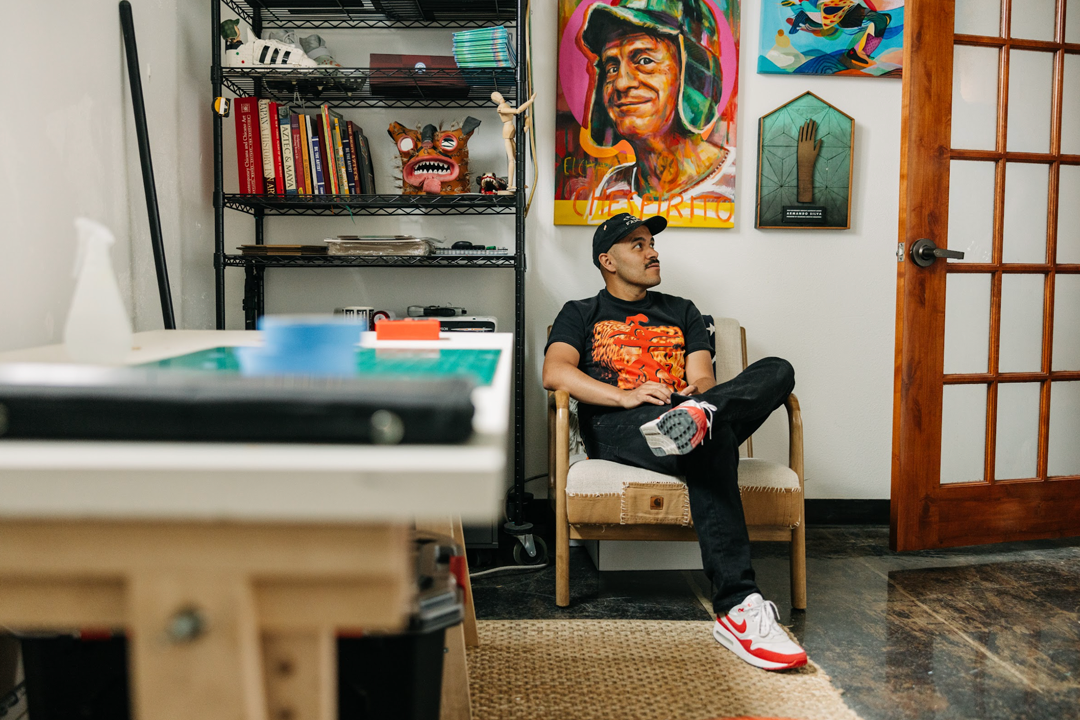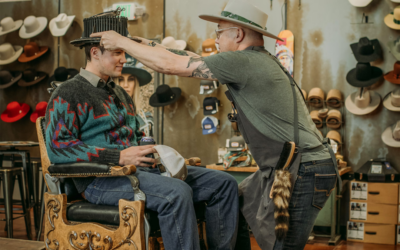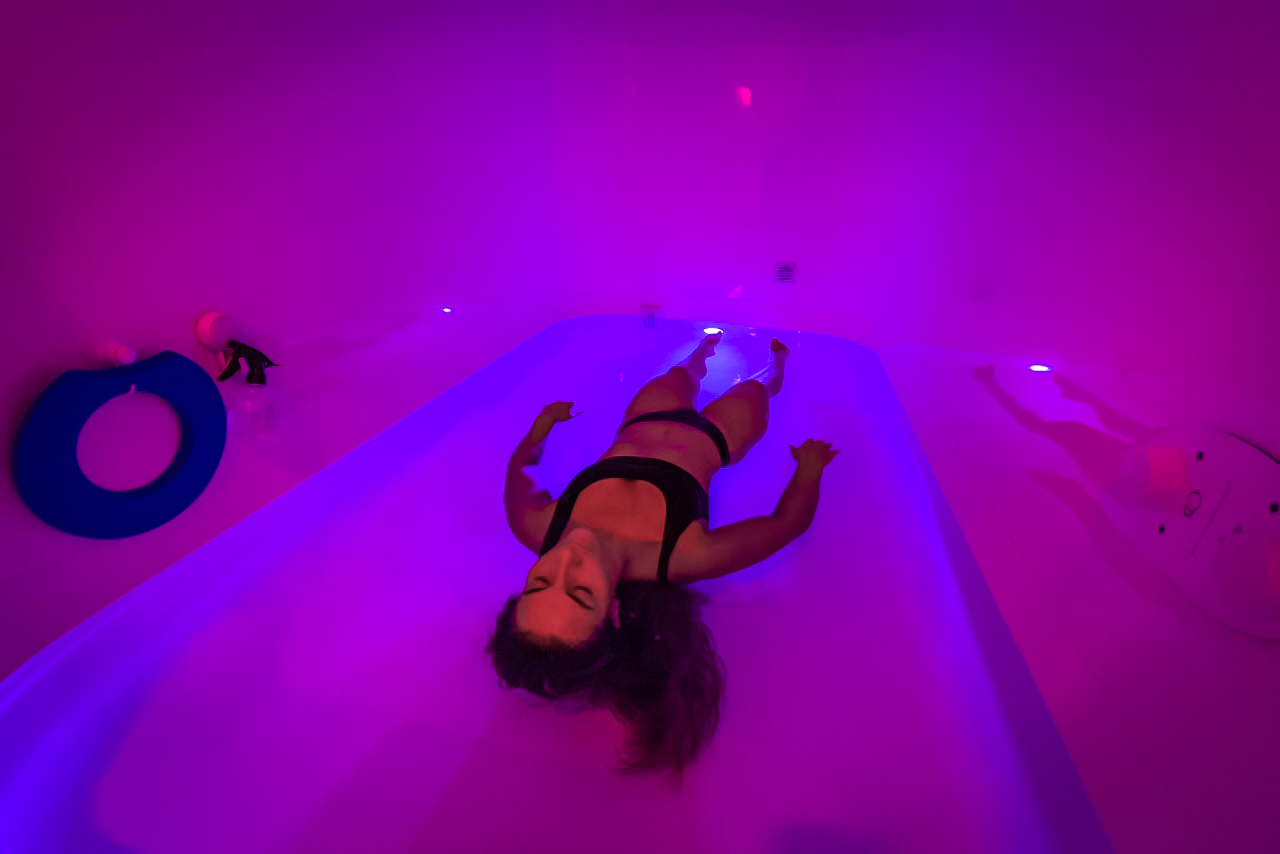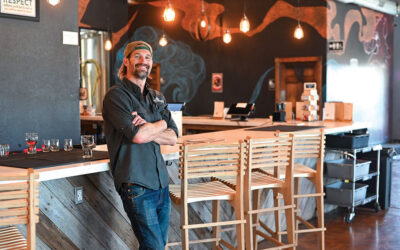When Angel Kwiatkowski transitioned out of her career at OtterBox to found the Fort Collins coworking space Cohere in 2010, she was tracking a shift in corporate ideology that saw fewer employers requiring their people to work in company offices.
“It centered on a change in attitude: People valued their lifestyle a little more than their career,” she says. “There were people who had a great job in Washington, D.C., where the quality of life wasn’t great, and their boss approved a move to Fort Collins, so they kept their job. It was worker-driven then.”
To conceptualize an ideal coworking business of her own, Kwiatkowski analyzed the things she enjoyed most about working at a startup like OtterBox. She landed on the diversity of people.
“It was talking with people from the PR department, logistics, shipping, marketing, web development and engineering,” she says. “I was fascinated by the skills these people had and wanted to make a place where all these cool people would come work and I could hang out with them.”
Her first members at Cohere were predominantly freelancers; only five percent were coworkers, but she says that has reversed as more businesses have joined coworking spaces. Now, Cohere brings in all the job titles Kwiatkowski found fascinating while working at OtterBox, plus artists and writers.
She also wanted to be unscalable, unlike WeWork, a coworking startup that similarly began in 2010 but pursued a path of aggressive global growth and unsustainable, unprofitable expansion. WeWork declared bankruptcy in 2023, but restructuring has allowed it to continue on a smaller scale, according to a Reuters article.
“I am always working against the WeWork narrative of a 30,000-square-foot building with 1,000 people working in it,” Kwiatkowski says. “If you meet someone you like at WeWork, you may never see them again because it’s so vast.”

Hot desks at desk chair in downtown Loveland. Photo by Caitlin Steuben Photography.
Post-COVID changes and financial pressures
When the COVID-19 pandemic shipped everyone home with very little emotional support or even a basic toolkit to work from home for the first time, Kwiatkowski saw a silent spiritual crisis evolve.
“Anyone can give you a VPN and an allowance for a desk and chair, but the hard part is the actual nuts and bolts of what it means to be alone all day,” she says.
But in the post-COVID world, remote and hybrid work options continued because people saw how those formats benefitted their schedule in a myriad of ways. For those with small children, it offered savings on daycare, says Kelly Langley Cook, owner of The Ambry, a new Greeley coworking space in a renovated 1920s cathedral.
“As terrible as COVID was, it proved that work can change,” she says. “Some of the more traditional spaces don’t accommodate what work looks like today. Does anyone out there look like a business person in a movie? We show up and do the work we need to do, but it doesn’t look like a 9-to-5 office anymore.”
The commercial real estate industry has struggled since the pandemic forced a worker exodus, most notably in urban and downtown areas. Nearly 17 percent of offices are currently vacant, a figure that will likely rise to 25 percent by 2026, according to National Council of Real Estate Investment Fiduciaries data from last October.
Mortgages coming due and higher interest rates have squeezed businesses trying to keep large spaces afloat, says Jim Doherty, community director at desk chair, a coworking space in downtown Loveland. Eli Scott, chief operating officer of desk chair, says that since the end of the pandemic, companies have compromised with partial or whole departments working from home, though he has heard of larger companies recalling people back to the office.
How coworking works
The desk chair concept is popular among both remote and hybrid workers. The building can accommodate up to 263 occupants with a range of price points offering dedicated desks, private suites, hot desks at shared tables and first-come, first-served areas. The spaces are offered on a month-to-month basis, allowing for expansion or contraction if businesses add employees or are in a temporary situation such as remodeling another workplace.
While desk chair is the only coworking space in Loveland, the building is never completely full. It’s a little big for the Loveland market, Scott says, so the basement is 75 percent full most of the time and the more desirable upper floors range from 80-100 percent occupancy. That’s partially because many people rent desks on an as-needed basis and aren’t there consistently.
But for remote workers seeking an escape from their home and small business owners wanting to foster camaraderie among their few employees, the flexibility of coworking spaces in a quiet environment—without having to sign a long-term lease—is a boon.
“These people have been working out of loud coffee shops, or they get easily distracted at home and find they can get more done at a cowork space,” Scott says. “It forces them to get out of the house, and it’s more affordable than getting their own space. There aren’t a lot of office spaces where you can get a small amount of square footage without signing a lease and the monthly rental includes trash, cleaning, IT services, internet, coffee, creamer and toiletries.”
Another factor in a coworking space’s success is workplace proximity, Scott says. While desk chair’s location in downtown Loveland is convenient for many, those who live farther away might not want to commute.
“Most people don’t want to drive far for a coworking space,” Scott says. “People won’t travel farther than 20 minutes, and most prefer being within 5-10 minutes from it.”
A coworking space’s design is also an important element. Some people are inspired by The Ambry’s 16 offices and 30 workspaces, with their artisan-crafted, old church aesthetic, while others are drawn to desk chairs’ edgy, midcentury modern vibe.
Cohere’s space has the capacity for 110 members all on one level in a building with plentiful natural light, Kwiatkowski says. The focus includes providing quiet spots for phone calls and soft spaces for taking breaks, arranging workstations to prevent glare on computer screens and minimizing visual clutter with serene, low-level lighting similar to home setups.
Ethical considerations are important, too, says Doherty, who points to desk chair’s member code of ethics agreement with house rules that discourage loud voices and prohibit speaker phones to avoid distracting others.
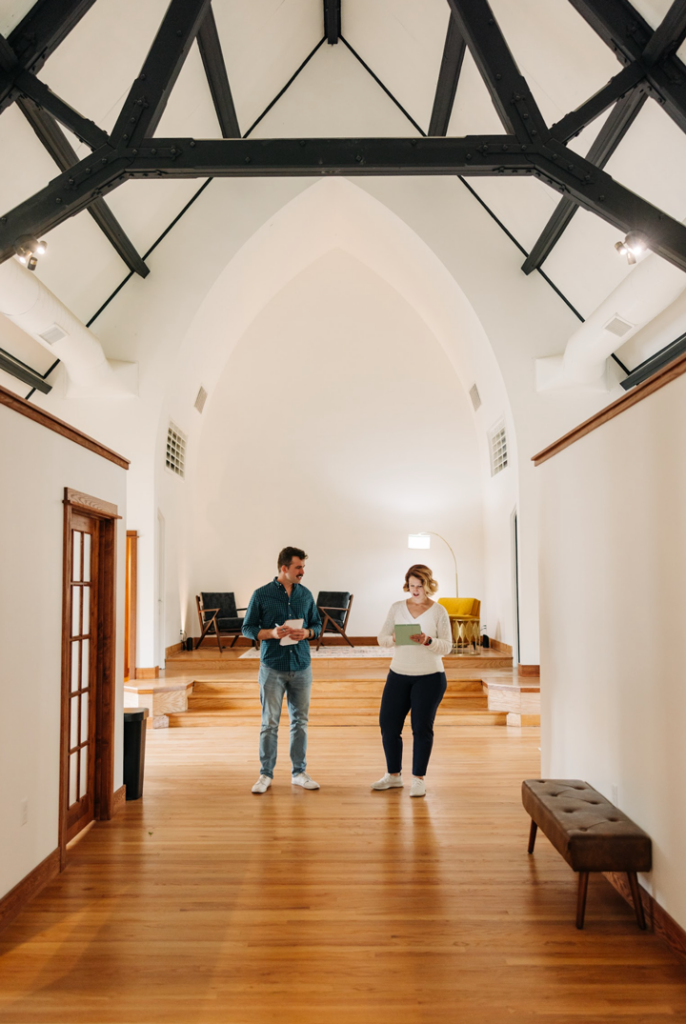
Jesse Saxion, a UNC theater student, and Megan Bissell at The Ambry. Photo by Shelby Perez, Sixteenth St. Studio.
Connection is more than blazing-fast Wi-Fi
Kwiatkowski says the infrastructure design at Cohere looks like an office space with a magical layer of community management, care and connection. She won’t franchise her Cohere concept because she says it can’t be replicated. She believes much of her success can be attributed to alleviating loneliness.
“They may not say that out loud—people will use tricks to justify it based on productivity because that’s safe in our society—but to admit that you’re in a mental health crisis because you’ve been working alone for three years…. Yes, they’ll be more productive here, but they’ll also meet their new best friend or find someone with a similar hobby,” Kwiatkowski says.
Desk chair’s concept also creates community, offering member amenities such as conference rooms, a rooftop patio and a fitness room. Perks like end-of-the-day beer or wine pours at the onsite cafe, monthly presentations by members to share business concepts and a monthly happy hour boost the sense of community culture.
Mentoring opportunities abound at all three coworking spaces, from asking other professionals for advice to creating one-off think tanks and idea incubators. Doherty says desk chair’s diversity of professionals offers valuable information and chances to network.
“If you worked at a big company and were chatting it up with a coworker all the time, you might have the HR department frowning on that,” he says. “Here, the vast majority of people are working remotely and can network and collaborate together without HR looking over their shoulder.”
The Ambry’s partnership with gBETA, a Greeley-based startup accelerator program with branches all over the country, offers mentorship, advice, grants and micro-loans, Langley Cook says, noting that several businesses operating out of The Ambry partner with gBETA. As a history education professor, Langley Cook is skilled at helping people learn how to communicate and form goals, but gBETA’s mentorship opportunities can address how to create a budget or hook up with different businesses across the state.
“It’s a different level than what we can offer,” she says.
For Kwiatkowski, mentorship also means having someone to talk to if you’re not feeling motivated or if you’ve just finished six hours of Zoom calls and need to unwind.
“I have no power over them,” she says. “I’m going to make them a cup of coffee and sit with them. It’s a tending of community, kind of like gardening.”
Better work-life balance
Having somewhere to go to work boosts productivity by helping people avoid the distractions of working from home, like small kids, laundry, animals who want to go in and out all day and the refrigerator’s temptations, Doherty says.
“If it’s baseball playoffs and the boss isn’t watching over you, you might take advantage of that freedom,” he says. “By coming to desk chair, it’s like putting on the uniform and going somewhere. When you’re there, you’re dialed in for a limited amount of time.”
Kwiatkowski acknowledges that what you get out of a flexible work arrangement is an individual choice.
“If you come in with headphones on and stare at your screen every day, that’s cool, but if you leave one earbud out, you might hear an interesting conversation to join in on,” she says.
Langley Cook prioritizes the idea of community with the goal of melding productivity and humanness. She asks members to commit to that too.
“You’re paying a good amount of money for a space, so it should function well for you,” she says. “If we’re out of toilet paper, put some in and then tell me. I want [members] to know we’re not just an office space; we’re here to take care of each other.”
What does a coworking space cost?
At desk chair, monthly prices for dedicated desks start at $345 per month based on the location in the building. Flexible hot desks cost $150-200 per month, or you can try out the work vibe with a $25 day pass. Private suites with four walls and a locking door start at $450 per desk per month. Larger office spaces for six or more people are also available.
The Ambry has cathedral offices starting at $425 per month, and their dedicated desks start at $250 per month. Memberships for unreserved desks cost $150 per month ($100 per month for students and startups). There is also a private downstairs office starting at $600 per month and retail space starting at $800 per month.
Cohere Coworking offers $30 day passes as well as memberships based on usage days ranging from
$89-259 per month with add-ons for reserved desks or sit/stand desks with monitors.


